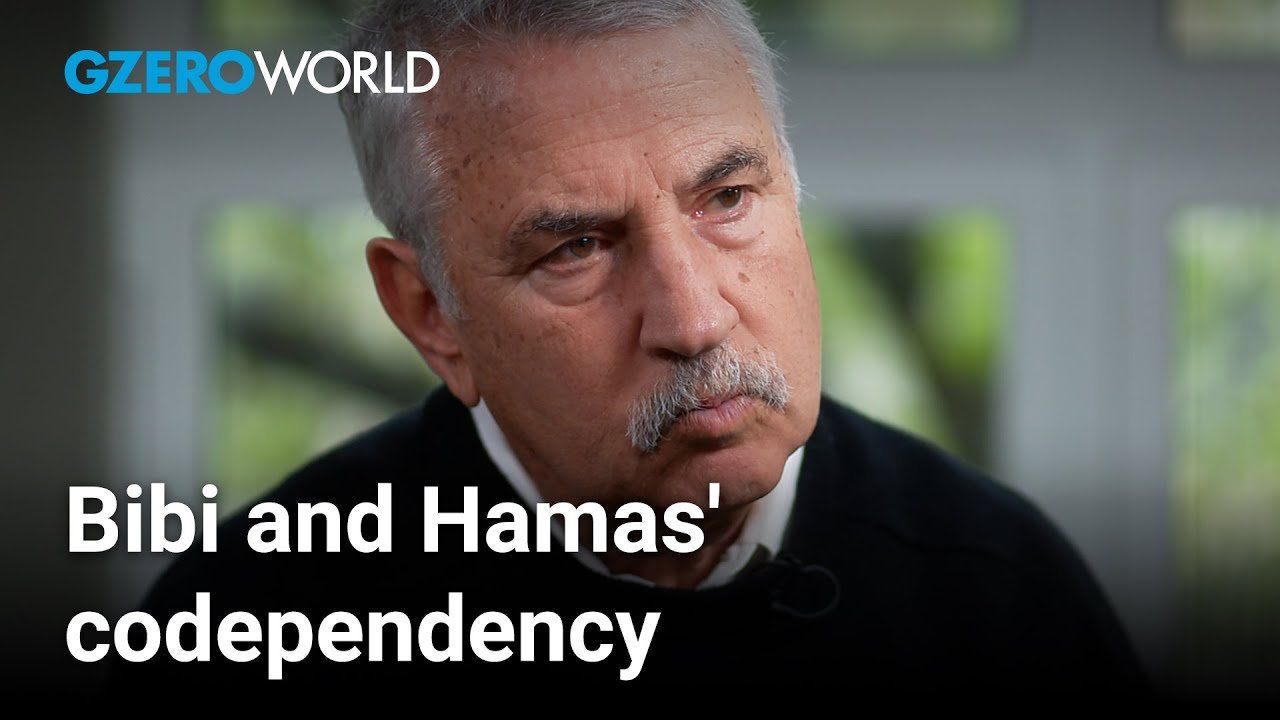GZERO World Clips
Friedman: Netanyahu is no longer at the wheel

Friedman: Bibi isn't driving the bus anymore | GZERO World

Israeli Prime Minister Benjamin "Bibi" Netanyahu has said that the only way the war in Gaza will end is with the complete destruction of Hamas, the pro-Palestinian terrorist group that controls Gaza and was behind the October 7 attack.
But Pulitzer prize-winning author and New York Times columnist Thomas Friedman argues that much of the horror that's played out in Gaza over the past six months goes back to a devil's bargain that Bibi has maintained with Hamas over the past fifteen years. "Netanyahu always understood that ... having a strong Hamas in Gaza is the best way to ensure a weak Palestinian Authority in the West Bank." In a wide-ranging interview for this week's episode of GZERO World, Ian Bremmer sits down with Friedman to try to chart out an imaginable (and palatable) ending to the Middle East's bloodiest war in years. "[Netanyahu] is now hostage to a far-right in his coalition that has told him that anything that smacks of a Palestinian state or even progress toward a Palestinian state...is a no-go. We'll throw you out of power.'"
So what can people do who consider themselves both pro-Israeli and pro-Palestinian? "The most important thing you can do to be pro-Israeli, " Friedman tells Bremmer, "...is to be for the removal of Bibi Netanyahu by the Israeli people." And the most pro-Palestinian thing you can do? "Be against Hamas and for the Palestinian Authority in Ramallah....Because if that project succeeds or makes progress, many more things are possible in terms of what can happen between the Israelis and Palestinians."
15: The number of migrants who died after their boat accidentally collided with a Greek Coast Guard vessel in the Aegean Sea on Tuesday. Two dozen people were rescued.
Walmart is investing $350 billion in US manufacturing. Over two-thirds of the products Walmart buys are made, grown, or assembled in America, like healthy dried fruit from The Ugly Co. The sustainable fruit is sourced directly from fourth-generation farmers in Farmersville, California, and delivered to your neighborhood Walmart shelves. Discover how Walmart's investment is supporting communities and fueling jobs across the nation.
Democratic Alliance leader John Steenhuisen announced Wednesday that he will not run for a third term as leader of the liberal, pro-business party, after months of internal pressure over a host of controversies – including allegations, since cleared, that he used the party credit card for Uber Eats.